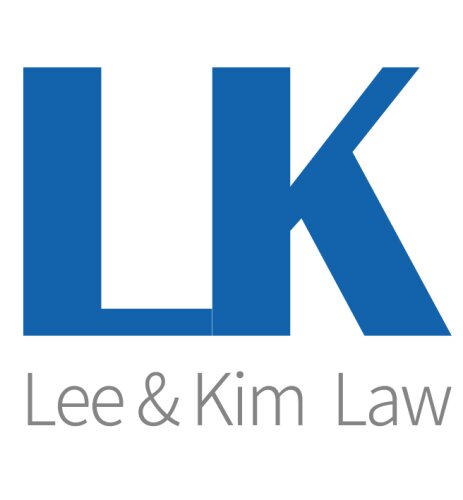Best Commercial Real Estate Lawyers in South Korea
Share your needs with us, get contacted by law firms.
Free. Takes 2 min.
Free Guide to Hiring a Real Estate Lawyer
Or refine your search by selecting a city:
List of the best lawyers in South Korea
About Commercial Real Estate Law in South Korea
Commercial real estate law in South Korea is an intricate field that involves various aspects of property use, development, sale, and acquisition within the country. South Korea has a well-established legal framework that governs commercial real estate transactions, including intricate zoning laws, development regulations, and contractual considerations. The market is robust and dynamic, particularly in major cities like Seoul, where both local and international investors are actively involved. Understanding the complexities and regulatory requirements is crucial for those engaging in commercial real estate activities in South Korea.
Why You May Need a Lawyer
Legal representation is often necessary in commercial real estate for several reasons:
- Negotiating and drafting purchase or lease agreements.
- Ensuring compliance with local zoning and development regulations.
- Handling disputes with landlords, tenants, or contractors.
- Facilitating due diligence when acquiring or developing property.
- Managing issues related to construction contracts and warranties.
- Assistance with financing and investments through various instruments.
- Navigating the process of environmental impact assessments.
Overall, engaging a lawyer specializing in commercial real estate can safeguard your interests, prevent costly mistakes, and facilitate smoother transactions.
Local Laws Overview
Several key aspects of South Korean law are relevant to commercial real estate:
- Real Property Act: Governs ownership, transfer, and registration of property.
- Zoning Regulations: Dictate how land and buildings can be used, with specific rules for commercial, residential, and industrial areas.
- Development Laws: Include provisions for building permits, approvals, and compliance with safety and environmental standards.
- Contract Law: Provides the framework for negotiating, executing, and enforcing real estate contracts.
- Lease Laws: Cover the rights and responsibilities between landlords and tenants, including eviction and renewal processes.
- Taxation: Involves property taxes, transfer taxes, and other related fiscal obligations.
Frequently Asked Questions
What documents are needed for a commercial real estate transaction in South Korea?
Key documents include the deed of sale, property registration certificate, zoning compliance certificate, signed contract, and proof of tax payment.
Are there any restrictions on foreign ownership of commercial properties?
Generally, there are no restrictions on foreign ownership of commercial properties in South Korea, but some industries and types of land may have specific requirements or limitations.
How long does it typically take to close a commercial real estate transaction?
The closing process can vary but typically takes between one to three months, depending on the complexity of the deal and due diligence requirements.
What is the role of a real estate broker in South Korea?
A real estate broker assists in locating properties, negotiating terms, and facilitating the transaction process, including paperwork and communication between parties.
How are commercial lease agreements structured?
Commercial lease agreements in South Korea typically include terms regarding lease duration, rent, maintenance obligations, and conditions for renewal or termination.
What should I know about property taxes on commercial properties?
Property taxes are levied annually based on the property’s assessed value and include nuances like acquisition tax and registration tax, which vary by location and use.
Can commercial real estate disputes be resolved through arbitration?
Yes, arbitration is a common method for resolving commercial real estate disputes, often preferred for its speed and confidentiality.
What are common environmental regulations impacting commercial real estate?
Common regulations include standards for air and water quality, waste disposal, and assessments for potential environmental hazards that could affect property use or value.
Are there any incentives for developing commercial properties in certain areas?
Yes, South Korea sometimes offers financial incentives, tax benefits, or relaxed regulations to encourage development in designated areas, particularly for sustainable and strategic industries.
How can I finance a commercial real estate purchase?
Financing can be obtained through local banks or international financial institutions via loans, mortgages, or investment partnerships, with terms varying based on creditworthiness and business plans.
Additional Resources
Consider the following resources for more information on commercial real estate in South Korea:
- Ministry of Land, Infrastructure, and Transport (MOLIT): Key reports and policy updates are available on regulatory frameworks and development plans.
- Korean Bar Association: Provides listings of licensed attorneys who specialize in real estate law.
- Korea Real Estate Board: Offers data and analysis on market trends and property listings.
- Korean Association of Realtors: Offers resources and guidance for navigating real estate transactions effectively.
Next Steps
If you are considering seeking legal assistance in commercial real estate, follow these steps:
- Identify your specific needs or issues related to your commercial real estate interests.
- Research and compile a list of potential law firms or attorneys specializing in real estate law in South Korea.
- Schedule consultations to discuss your case, understand services offered, and assess compatibility.
- Review engagement terms carefully before entering into agreements with legal counsel.
- Stay informed about relevant legal updates and market trends that may impact your assets or decisions.
Engaging a knowledgeable legal expert can help navigate the challenges of the South Korean real estate landscape and protect your investments efficiently.
Lawzana helps you find the best lawyers and law firms in South Korea through a curated and pre-screened list of qualified legal professionals. Our platform offers rankings and detailed profiles of attorneys and law firms, allowing you to compare based on practice areas, including Commercial Real Estate, experience, and client feedback.
Each profile includes a description of the firm's areas of practice, client reviews, team members and partners, year of establishment, spoken languages, office locations, contact information, social media presence, and any published articles or resources. Most firms on our platform speak English and are experienced in both local and international legal matters.
Get a quote from top-rated law firms in South Korea — quickly, securely, and without unnecessary hassle.
Disclaimer:
The information provided on this page is for general informational purposes only and does not constitute legal advice. While we strive to ensure the accuracy and relevance of the content, legal information may change over time, and interpretations of the law can vary. You should always consult with a qualified legal professional for advice specific to your situation.
We disclaim all liability for actions taken or not taken based on the content of this page. If you believe any information is incorrect or outdated, please contact us, and we will review and update it where appropriate.
Browse commercial real estate law firms by city in South Korea
Refine your search by selecting a city.















